Syria has been in the news over the last several years. With the recent chemical attacks and bombing, curiosity over Syria and Bible Verses regarding this country has increased.
Syria is written about throughout the Bible, both Old and New Testaments. Its people trace their origins to Noah. So, what exactly can we learn about Syria and its people?
Have you ever wanted to know:
What land is Syria comprised of? What are other names for Syria found in the Bible? Were there famous Biblical figures who lived in or visited Syria? What prophecies are there regarding Damascus? Why is this country important in the Bible? And, who are the Biblical ancestors of the Syrian people?
These important questions we will delve into.
Here are 15 Things About Syria's People and History, as Found in the Bible:
Photo Courtesy: Thinkstock
.800w.tn.jpg)
Syrian Heritage
Smith's Bible Dictionary records: "The first occupants of Syria appear to have been of Hamitic descent --Hittites, Jebusites, Amorites, etc. After a while, the first comers, who were still largely nomadic, received a Semitic infusion, while most Probably came to them from the southeast."
Syrians can trace their Biblical heritage back to a man named Aram. He was a descendant of Shem, Noah's son. Also known as Arameans, the plight of the Syrian people can be read about throughout both the Old and New Testaments. Syria is one of the oldest Biblical lands that still exists today.
In the book of Genesis, we first hear mention of the people who would become Syrians. Their lineage is recorded here:
"The sons of Shem: Elam, Ashur, Arphaxad, Lud and Aram. The sons of Aram: Uz, Hul, Gether and Meshek." (Genesis 10:22-23)
It is also found in 1 Chronicles 1:17.
The people of Syria settled between the Tigris and Euphrates rivers, also known as Mesopotamia. (Genesis 24:10, 25:20) This included a land called Paddan Aram. (Genesis 28:5) Paddan Aram may sound familiar, as this is the homeland of Rebekah, the wife of Issac, Laban, her brother and his daughters Rachel, and Leah, the wives of Jacob.
Other key Biblical figures of Aramean descent include Boaz, David, Solomon, Hezekiah, Josiah, and Joseph, the adoptive father of Jesus.
Photo Courtesy: ©Thinkstock
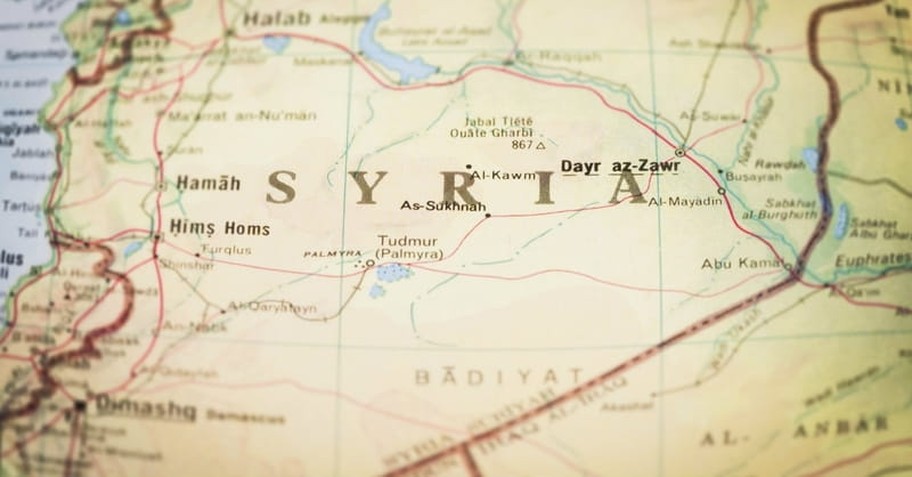
The Land of Syria
The land that became Syria, Aram settled northeast of Palestine, stretching from the Jordan River to the Euphrates, and to Lake Gennesaret. Along with "Syria," it was also called "Aram" and "Mesopotamia." The name Aram in Hebrew signifies the high elevation found in this mountainous land.
Smith's Bible Dictionary says, "Its earliest occurrence in the book of Genesis is in the form of Aram-naharaim , i.e. the 'highland of or between the two rivers.' (Genesis 24:10) Authorized Version 'Mesopotamia.' In the later history, we meet with a number of small nations or kingdoms forming parts of the general land of Aram; but as Damascus increased in importance it gradually absorbed the smaller powers, (1 Kings 20:1) and the name of Aram was at last applied to it alone. (Isaiah 7:8 ) also 1 Kings 11:24-25; 1 Kings 15:18 etc."
Photo Courtesy: ©Thinkstock/the_guitar_mann
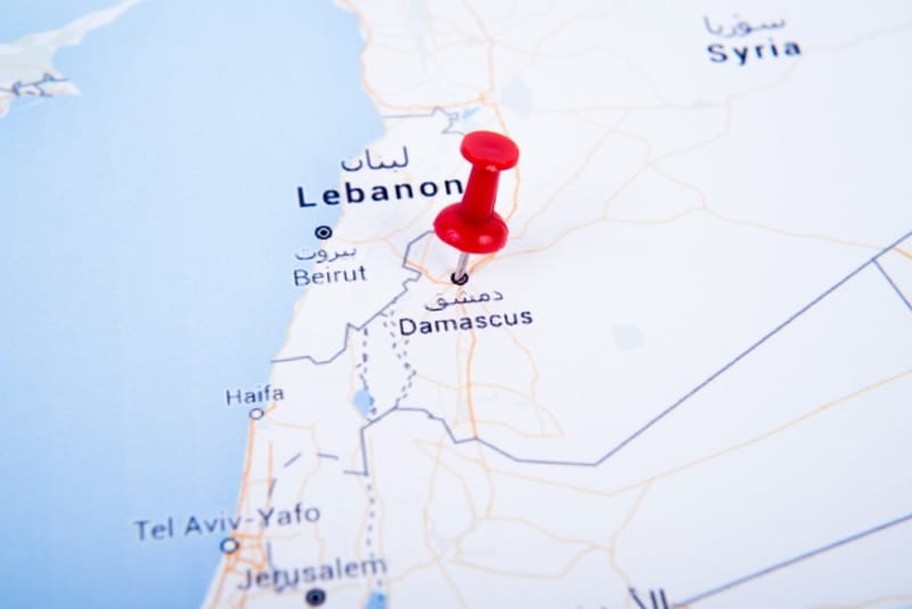
Notable Towns and Cities in Syria
There are several recognizable towns and cities of Syria throughout the Bible. Many were very important to the Early Church in the New Testament, namely, Antioch and Damascus. Smith's Bible Dictionary lists the cities of Syria, in order of importance in the Bible:
"1, Antioch; 2, Damascus; 3, Apamea; 4, Seleucia; 5, Tadmor or Palmyra; 6, Laodicea; 7, Epiphania (Hamath); 8, Samosata; 9, Hierapolis (Mabug); 10, Chalybon; 11, Emesa; 12, Heliopolis; 13, Laodicea ad Libanum; 14, Cyrrhus; 15, Chalcis; 16, Poseideum; 17, Heraclea; 18, Gindarus; 19, Zeugma; 20, Thapsacus."
"Of these, Samosata, Zeugma and Thapsacus are on the Euphrates; Seleucia, Laodicea, Poseideum and Heraclea, on the seashore, Antioch, Apamea, Epiphania and Emesa (Hems ), on the Orontes; Heliopolis and Laodicea ad Libanum, in Coele-Syria; Hierapolis, Chalybon, Cyrrhus, Chalcis and Gindarns, in the northern highlands; Damascus on the skirts, and Palmyra in the centre, of the eastern desert."
Other areas within Syria include the minor kingdoms Aram-zobah (Zobah/Zoba), Aram Naharaim, Geshur, Aram-rehob (Beth-rehob).
Photo Courtesy: ©Thinkstock
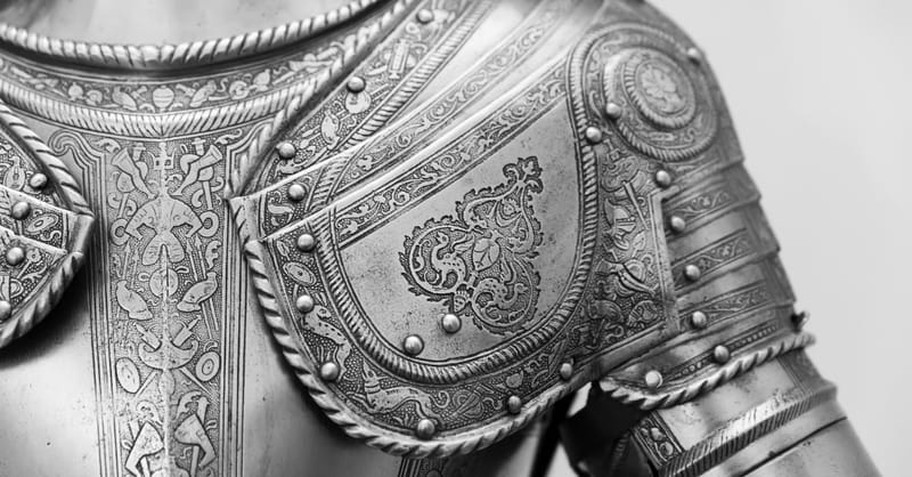
Syrian Relations with Israel
In the Old Testament, in the time of Judges, God tested Israel. He left several nations to train for battle those Israelites who had not previously experienced war. Rather than following the Lord and His law, the Israelites instead married foreigners and worshiped their gods. Therefore, the Lord punished Israel by driving them into captivity:
"The Israelites did evil in the eyes of the LORD; they forgot the LORD their God and served the Baals and the Asherahs.The anger of the LORD burned against Israel so that he sold them into the hands of Cushan-Rishathaim king of Aram Naharaim, to whom the Israelites were subject for eight years." (Judges 3:7-8)
The Israelites were subject to the ruler of Aram Naharaim, a kingdom of Aram (Syria). Here, the Syrians were enemies of Israel.
"But when they cried out to the LORD, he raised up for them a deliverer, Othniel son of Kenaz, Caleb’s younger brother, who saved them. The Spirit of the LORD came on him, so that he became Israel’s judge and went to war. The LORD gave Cushan-Rishathaim king of Aram into the hands of Othniel, who overpowered him. So the land had peace for forty years, until Othniel son of Kenaz died." (Judges 3:9-10)
Israel went to war with Syria and overcame the king of Aram Naharaim.
Photo Courtesy: ©Thinkstock
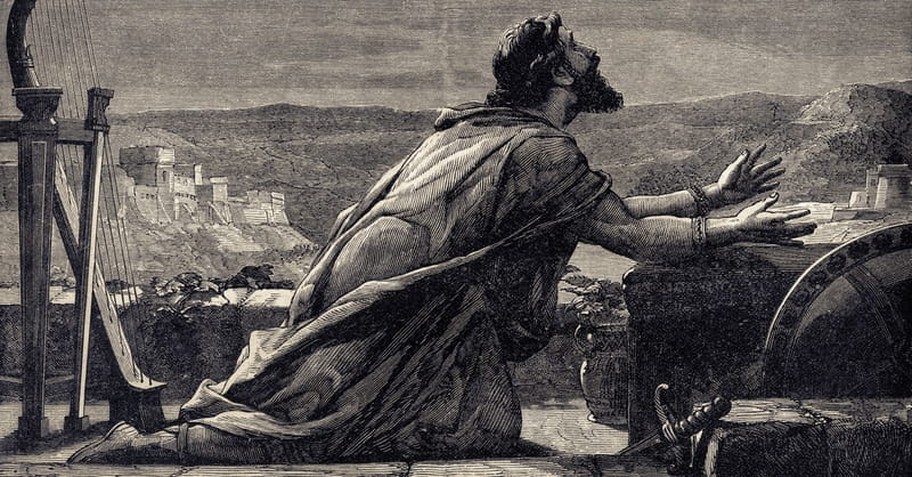
King David's Conquest of Syria
Sometime after the conflict in Judges, King David of Israel led a conquest against Syria and won. This is documented in 1 Chronicles 18:1-13, Psalm 60, and 2 Samuel 8:3-13:
"Moreover, David defeated Hadadezer son of Rehob, king of Zobah, when he went to restore his monument at the Euphrates River. David captured a thousand of his chariots, seven thousand charioteers and twenty thousand foot soldiers. He hamstrung all but a hundred of the chariot horses. When the Arameans of Damascus came to help Hadadezer king of Zobah, David struck down twenty-two thousand of them. He put garrisons in the Aramean kingdom of Damascus, and the Arameans became subject to him and brought tribute. The LORD gave David victory wherever he went."
"David took the gold shields that belonged to the officers of Hadadezer and brought them to Jerusalem. From Tebah and Berothai, towns that belonged to Hadadezer, King David took a great quantity of bronze. When Tou king of Hamath heard that David had defeated the entire army of Hadadezer, he sent his son Joram to King David to greet him and congratulate him on his victory in battle over Hadadezer, who had been at war with Tou. Joram brought with him articles of silver, of gold and of bronze. King David dedicated these articles to the LORD, as he had done with the silver and gold from all the nations he had subdued: Edom and Moab, the Ammonites and the Philistines, and Amalek. He also dedicated the plunder taken from Hadadezer son of Rehob, king of Zobah. And David became famous after he returned from striking down eighteen thousand Edomites in the Valley of Salt."
Photo Courtesy: ©Lightstock

Rezon of Zobah, a New Adversary of Israel
Following King David's defeat of the Zobah, his son, King Solomon, also had a conflict with Syria:
"And God raised up against Solomon another adversary, Rezon son of Eliada, who had fled from his master, Hadadezer king of Zobah. When David destroyed Zobah’s army, Rezon gathered a band of men around him and became their leader; they went to Damascus, where they settled and took control. Rezon was Israel’s adversary as long as Solomon lived, adding to the trouble caused by Hadad. So Rezon ruled in Aram and was hostile toward Israel." (1 Kings 11:23-25)
Rezon, who was originally from Zobah, took control of the capital city, Damascus, and became the new ruler of Syria.
Photo Courtesy: ©Thinkstock
.800w.tn.jpg)
An Unlikely Alliance: Syria and Judah
In 1 Kings 15, in the time of the two kingdoms: Israel and Judah, King Asa of Judah reached out to King Ben-Hadad Syria for help in a conflict against Israel. The ruler of Israel at the time was King Baasha, who led a siege against Judah:
"There was war between Asa and Baasha king of Israel throughout their reigns. Baasha king of Israel went up against Judah and fortified Ramah to prevent anyone from leaving or entering the territory of Asa king of Judah."
"Asa then took all the silver and gold that was left in the treasuries of the LORD’s temple and of his own palace. He entrusted it to his officials and sent them to Ben-Hadad son of Tabrimmon, the son of Hezion, the king of Aram, who was ruling in Damascus. “Let there be a treaty between me and you,” he said, “as there was between my father and your father. See, I am sending you a gift of silver and gold. Now break your treaty with Baasha king of Israel so he will withdraw from me." Ben-Hadad agreed with King Asa and sent the commanders of his forces against the towns of Israel. He conquered Ijon, Dan, Abel Beth Maakah and all Kinnereth in addition to Naphtali."
King Baasha withdrew from Ramah and ceased building his fortress. The supplies which he used, King Asa gathered for building up Geba and Mizpah.
Photo Courtesy: Pixabay
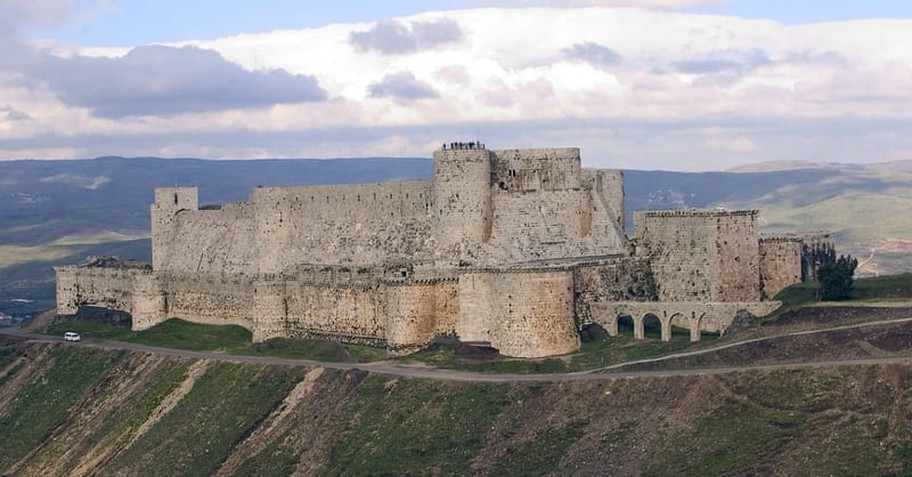
Hazael Anointed as King over Aram (Syria)
During the reign of King Ahab of Israel, Elijah the prophet was given a word from the Lord:
"The LORD said to him, “Go back the way you came, and go to the Desert of Damascus. When you get there, anoint Hazael king over Aram. Also, anoint Jehu son of Nimshi king over Israel, and anoint Elisha son of Shaphat from Abel Meholah to succeed you as prophet. Jehu will put to death any who escape the sword of Hazael, and Elisha will put to death any who escapes the sword of Jehu. Yet I reserve seven thousand in Israel—all whose knees have not bowed down to Baal and whose mouths have not kissed him.” (1 Kings 19:15-18)
Though Hazael was chosen to be king of Aram, his evil desires would turn him against Israel.
Photo Courtesy: Pixabay
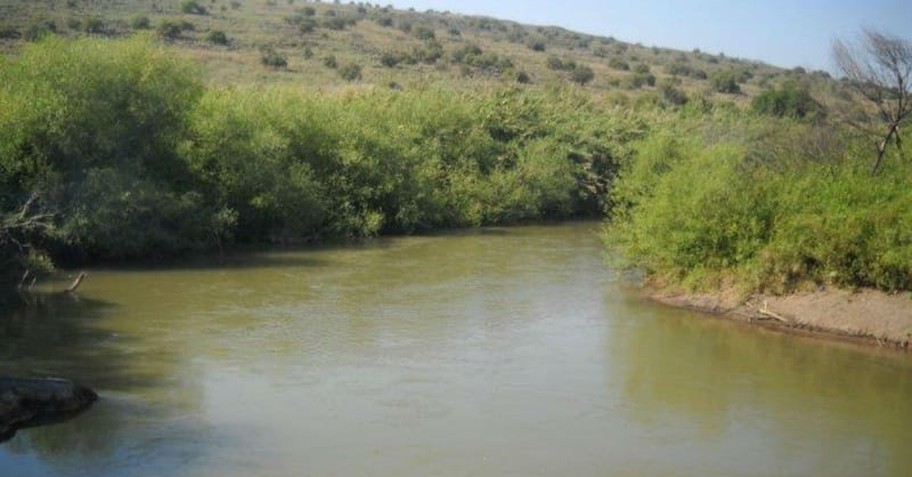
Naaman the Aramean Healed in Israel
During Aram's conflict with Israel, a commander in the Aramean army, Naaman sought help from the prophet Elisha of Israel (Elijah's successor). Naaman had leprosy. Because he was so well regarded as a soldier, the king of Aram allowed him to go, sending him with a letter to the King of Israel explaining the situation.
"As soon as the king of Israel read the letter, he tore his robes and said, “Am I God? Can I kill and bring back to life? Why does this fellow send someone to me to be cured of his leprosy? See how he is trying to pick a quarrel with me!” When Elisha the man of God heard that the king of Israel had torn his robes, he sent him this message: “Why have you torn your robes? Have the man come to me and he will know that there is a prophet in Israel.” So Naaman went with his horses and chariots and stopped at the door of Elisha’s house. Elisha sent a messenger to say to him, “Go, wash yourself seven times in the Jordan, and your flesh will be restored and you will be cleansed.” (2 Kings 5:7-10)
But Naaman expected healing to come in a different way and was angry, however; after his servants convinced him to follow Elisha's instructions, Naaman was healed:
"So he went down and dipped himself in the Jordan seven times, as the man of God had told him, and his flesh was restored and became clean like that of a young boy. Then Naaman and all his attendants went back to the man of God. He stood before him and said, “Now I know that there is no God in all the world except in Israel." (2 Kings 5:14-15a)
Photo Courtesy: Lehava Activity 2013 Pikiwiki Israel, PikiWiki Israel 29585 Jordan River, size, CC BY 2.5

Elisha Prophesies over Hazael
Ben-hadad, the King of Aram continued his war against Israel and eventually became ill (1 Kings 20:1-43-2 Kings 8). So, he sent word to Hazael to meet with Elisha to inqure to God about his health. Elisha was in Damascus at the time. Elisha told Hazael to reply to the king that he would die. Looking at Hazael, Elisha began to cry. When Hazael asked him about it, Elisha said:
“Because I know the harm you will do to the Israelites,” he answered. “You will set fire to their fortified places, kill their young men with the sword, dash their little children to the ground, and rip open their pregnant women.” Hazael said, “How could your servant, a mere dog, accomplish such a feat?” “The LORD has shown me that you will become king of Aram,” answered Elisha."
"Then Hazael left Elisha and returned to his master. When Ben-Hadad asked, “What did Elisha say to you?” Hazael replied, “He told me that you would certainly recover.” But the next day he took a thick cloth, soaked it in water and spread it over the king’s face, so that he died. Then Hazael succeeded him as king." (2 Kings 8:7-15)
Hazael's wars against Israel and Judah are recorded in 2 Chronicles and 2 Kings.
Photo Courtesy: ©Flickr, free to use
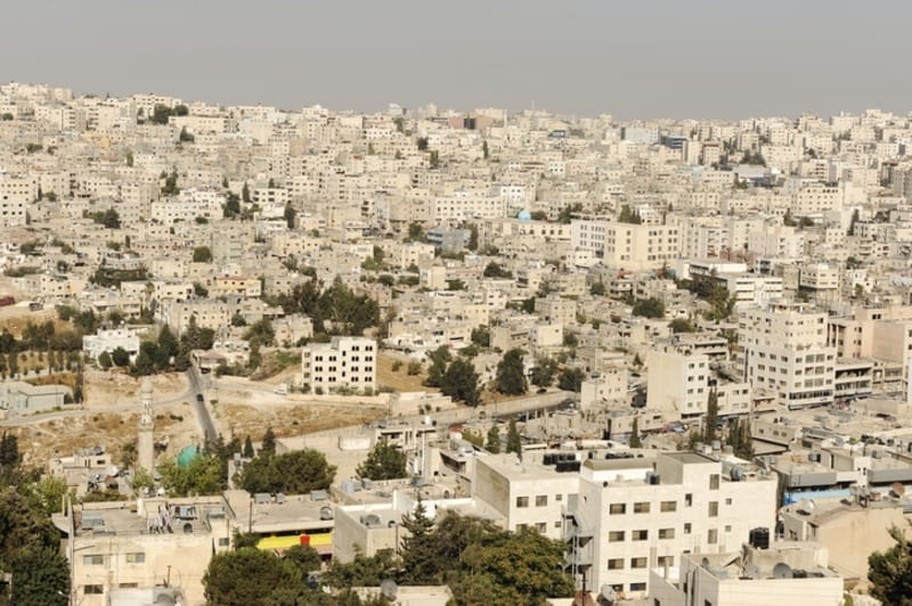
King Jeroboam II of Israel takes Damascus and Hamath
Jeroboam II of Israel led a campaign to take back land for Israel, as noted in 2 Kings. These lands included part of Syria, namely Damascus and Hamath:
"He was the one who restored the boundaries of Israel from Lebo Hamath to the Dead Sea, in accordance with the word of the LORD, the God of Israel, spoken through his servant Jonah son of Amittai, the prophet from Gath Hepher ... As for the other events of Jeroboam’s reign, all he did, and his military achievements, including how he recovered for Israel both Damascus and Hamath, which had belonged to Judah, are they not written in the book of the annals of the kings of Israel? (2 Kings 14:25, 28)
Photo Courtesy: Thinkstock
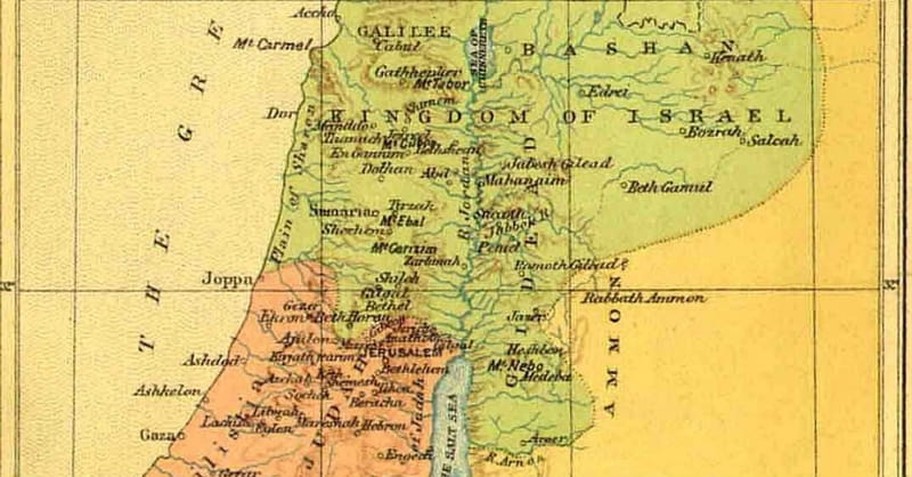
Assyria Becomes Involved with a Judahen-Syrian/Israeli Conflict
In another unlikely alliance, the king of Syria and the king of Israel came up against Judah. At this time, the king of Judah was Ahaz. The events are recorded in 2 Kings 16:
"Then Rezin king of Aram and Pekah son of Remaliah king of Israel marched up to fight against Jerusalem and besieged Ahaz, but they could not overpower him.
At that time, Rezin king of Aram recovered Elath for Aram by driving out the people of Judah. Edomites then moved into Elath and have lived there to this day. Ahaz sent messengers to say to Tiglath-Pileser king of Assyria, “I am your servant and vassal. Come up and save me out of the hand of the king of Aram and of the king of Israel, who are attacking me.” And Ahaz took the silver and gold found in the temple of the LORD and in the treasuries of the royal palace and sent it as a gift to the king of Assyria. The king of Assyria complied by attacking Damascus and capturing it. He deported its inhabitants to Kir and put Rezin to death. (2 Kings 16:5-9)
Photo Courtesy: Wikimedia Commons, Public Domain
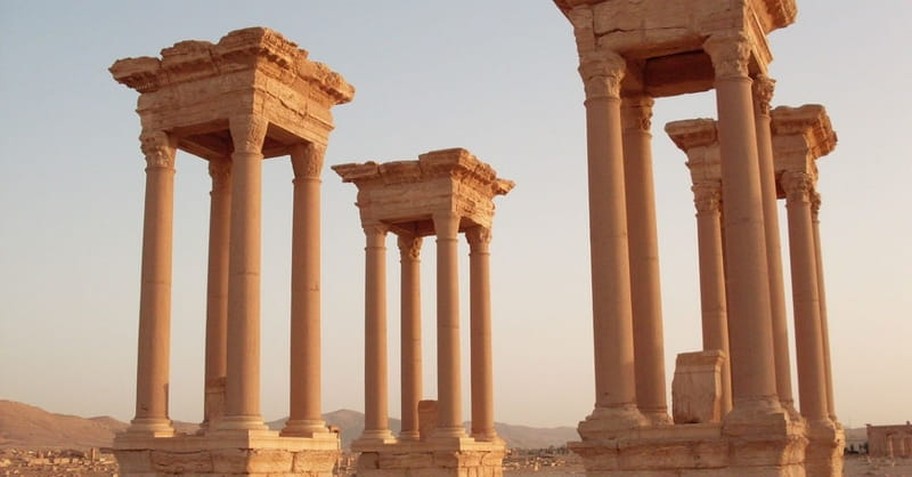
The Assyrians Resettle Samaria
After the Assyrians conquered Damascus and sent the Syrians to Kir (1 Kings 16:9), Israel fell to Assyria:
"In the ninth year of Hoshea, the king of Assyria captured Samaria and deported the Israelites to Assyria. He settled them in Halah, in Gozan on the Habor River and in the towns of the Medes." (2 Kings 17:6)
Then, the King of Assyria brought the people of Syria to Samaria:
"The king of Assyria brought people from Babylon, Kuthah, Avva, Hamath and Sepharvaim and settled them in the towns of Samaria to replace the Israelites. They took over Samaria and lived in its towns." (2 Kings 17:24)
We also learn that the Syrians who were living in Samaria worshiped idols:
"The people from Babylon made Sukkoth Benoth, those from Kuthah made Nergal, and those from Hamath made Ashima...They worshiped the LORD, but they also served their own gods in accordance with the customs of the nations from which they had been brought." (2 Kings 17:30, 33)
In his next, attempted siege of Judah, King Sennacherib sent a commanding officer to deliver a message to King Hezekiah. In this message, he references his capture of Syrian lands, Hamath and Arpad and Samaria:
"Has the god of any nation ever delivered his land from the hand of the king of Assyria? Where are the gods of Hamath and Arpad? Where are the gods of Sepharvaim, Hena and Ivvah? Have they rescued Samaria from my hand?" (2 Kings 18:33-35)
Photo Courtesy: Pixabay
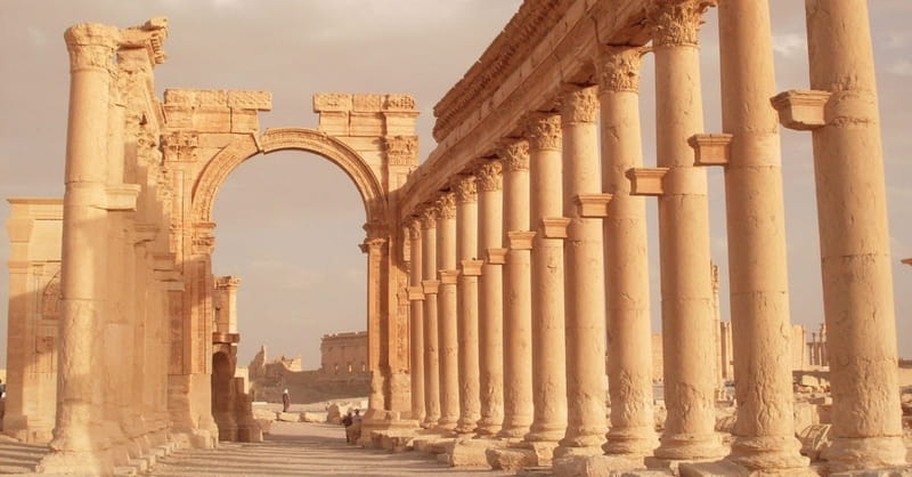
Isaiah's Prophecy Concerning Syria
Isaiah records these words concerning Syria, specifically their capture by Assyria:
"For before the boy knows how to say ‘My father’ or ‘My mother,’ the wealth of Damascus and the plunder of Samaria will be carried off by the king of Assyria.” The LORD spoke to me again: “Because this people has rejected the gently flowing waters of Shiloah and rejoices over Rezin and the son of Remaliah, therefore the Lord is about to bring against them the mighty floodwaters of the Euphrates— the king of Assyria with all his pomp. It will overflow all its channels, run over all its banks and sweep on into Judah, swirling over it, passing through it and reaching up to the neck. Its outspread wings will cover the breadth of your land, Immanuel !” Raise the war cry, you nations, and be shattered! Listen, all you distant lands. Prepare for battle, and be shattered! Prepare for battle, and be shattered! Devise your strategy, but it will be thwarted; propose your plan, but it will not stand, for God is with us." (Isaiah 8:4-10) To read the full prophecy, click here.
Isaiah 17 also records a prophecy concerning Syria:
"A prophecy against Damascus: “See, Damascus will no longer be a city but will become a heap of ruins. The cities of Aroer will be deserted and left to flocks, which will lie down, with no one to make them afraid. The fortified city will disappear from Ephraim, and royal power from Damascus; the remnant of Aram will be like the glory of the Israelites,” declares the LORD Almighty." (Isaiah 17:1-3) To read a commentary on this passage, click here.
Photo Courtesy: Pixabay
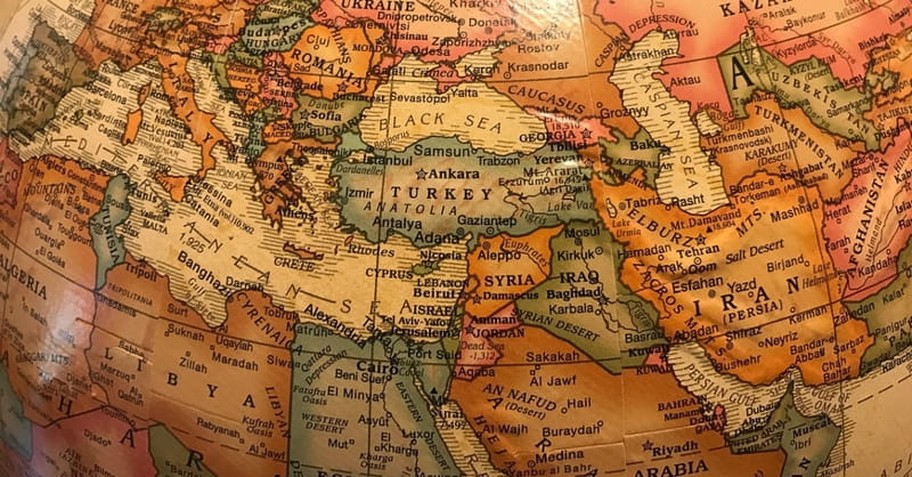
Amos's Prophecy About Syria
The prophet, Amos also prophesied Syria's defeat by Assyria. During the reign of King Jeroboam II of Israel, Amos says:
"This is what the LORD says: “For three sins of Damascus, even for four, I will not relent. Because she threshed Gilead with sledges having iron teeth, I will send fire on the house of Hazael that will consume the fortresses of Ben-Hadad. I will break down the gate of Damascus; I will destroy the king who is in the Valley of Aven and the one who holds the scepter in Beth Eden. The people of Aram will go into exile to Kir,” says the LORD." (Amos 1:3-5)
This prophecy was fulfilled in 1 Kings 16, when Assyria attacked and took over the city of Damascus and sent the inhabitants to Kir, killing their king, Rezin.
Photo Courtesy: ©Thinkstock
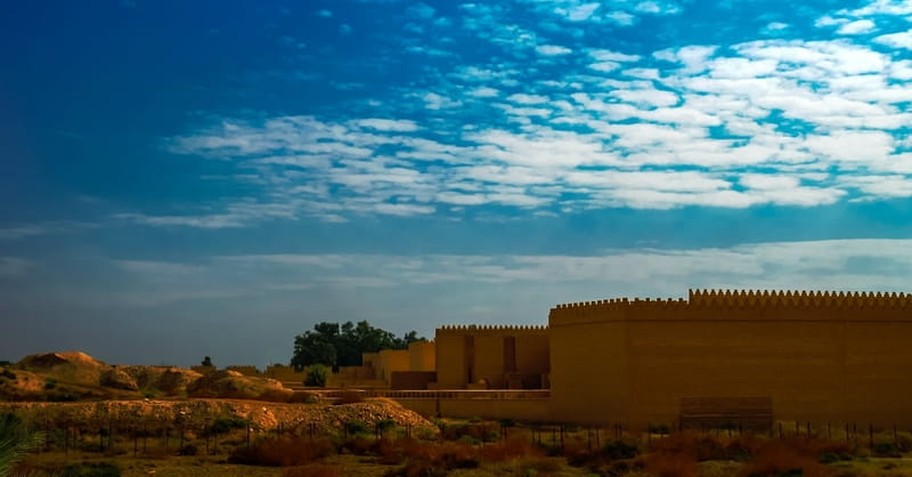
Jeremiah's Prophecy About Damascus (Syria)
After the destruction of Jerusalem by Babylon in 587/586 BC, Judah was led into captivity by King Nebuchadnezzar. Around the time of Babylonian captivity, the prophet, Jeremiah, spoke a word about Damascus, Syria:
"Concerning Damascus: “Hamath and Arpad are dismayed, for they have heard bad news. They are disheartened, troubled like the restless sea. Damascus has become feeble, she has turned to flee and panic has gripped her; anguish and pain have seized her, pain like that of a woman in labor. Why has the city of renown not been abandoned, the town in which I delight? Surely, her young men will fall in the streets; all her soldiers will be silenced in that day,” declares the LORD Almighty. “I will set fire to the walls of Damascus; it will consume the fortresses of Ben-Hadad.” (Jeremiah 49:23-27)
Jeremiah writes about the cities of Hamath and Arpad, which were destroyed by the Assyrians. In verse 27, Jeremiah references Ben-Hadad, which was the name of Syria's kings. (1 Kings 15, 2 Kings 13)
Photo Courtesy: ©Thinkstock
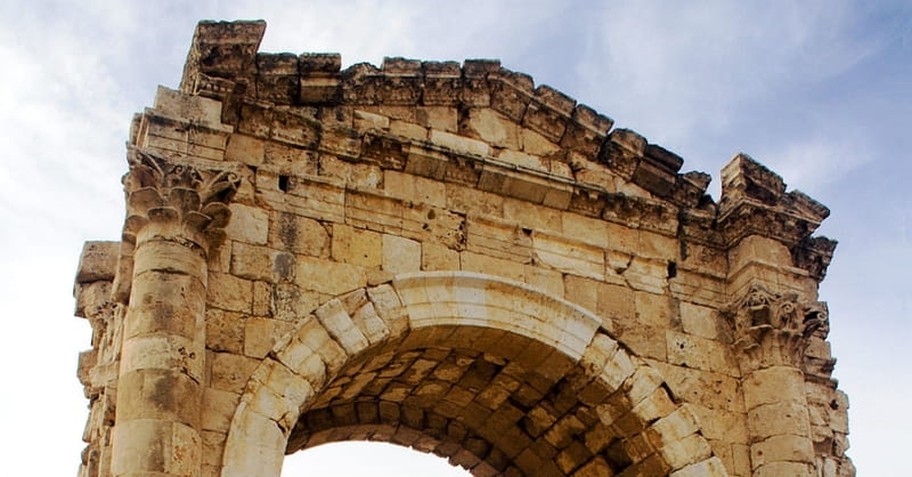
The Prophecy of Zechariah Regarding Syria
After the Babylonian captivity, the Judaheans are permitted to return to Jerusalem to rebuild the temple. The prophecy against Damascus in Zechariah occurs contemporary to this time in Judah's history.
"The word of the LORD is against the land of Hadrak and will come to rest on Damascus— for the eyes of all people and all the tribes of Israel are on the LORD—and on Hamath too, which borders on it, and on Tyre and Sidon, though they are very skillful." (Zechariah 9:1-2)
This verse, in the New Revised Standard Version, reads:
"The word of the LORD is against the land of Hadrach and will rest upon Damascus. For to the LORD belongs the capital of Aram, as do all the tribes of Israel; Hamath also, which borders on it, Tyre and Sidon, though they are very wise."
The HarperCollins Study Bible notes that Aram, in this passage, could have an additional meaning: "Cn: Heb of Adam (or of humankind)." Likewise, capital can also mean "eye," in Hebrew.
Photo Courtesy: David Bjorgen, Tyre Triumphal Arch, size, CC BY-SA 2.5

Syria in the New Testament
In the New Testament, Syria is a Roman province. It is referenced in Luke 2, at the time of the census prior to Jesus' birth. It is also referenced as Jesus begins his ministry:
"Jesus went throughout Galilee, teaching in their synagogues, proclaiming the good news of the kingdom, and healing every disease and sickness among the people. News about him spread all over Syria, and people brought to him all who were ill with various diseases, those suffering severe pain, the demon-possessed, those having seizures, and the paralyzed; and he healed them. Large crowds from Galilee, the Decapolis, Jerusalem, Judea and the region across the Jordan followed him." (Matthew 4:23-25)
This province also included Canaan and Phonecia. The people of Phonecia were also called "Syrophonecians." In Mark 7:24-30, Jesus encounters and heals a Syrophonecian woman:
"Jesus left that place and went to the vicinity of Tyre. He entered a house and did not want anyone to know it; yet he could not keep his presence secret. In fact, as soon as she heard about him, a woman whose little daughter was possessed by an impure spirit came and fell at his feet.
The woman was a Greek, born in Syrian Phoenicia. She begged Jesus to drive the demon out of her daughter. “First let the children eat all they want,” he told her, “for it is not right to take the children’s bread and toss it to the dogs.” “Lord,” she replied, “even the dogs under the table eat the children’s crumbs.” Then he told her, “For such a reply, you may go; the demon has left your daughter.” She went home and found her child lying on the bed, and the demon gone."
Photo Courtesy: ©Lightstock
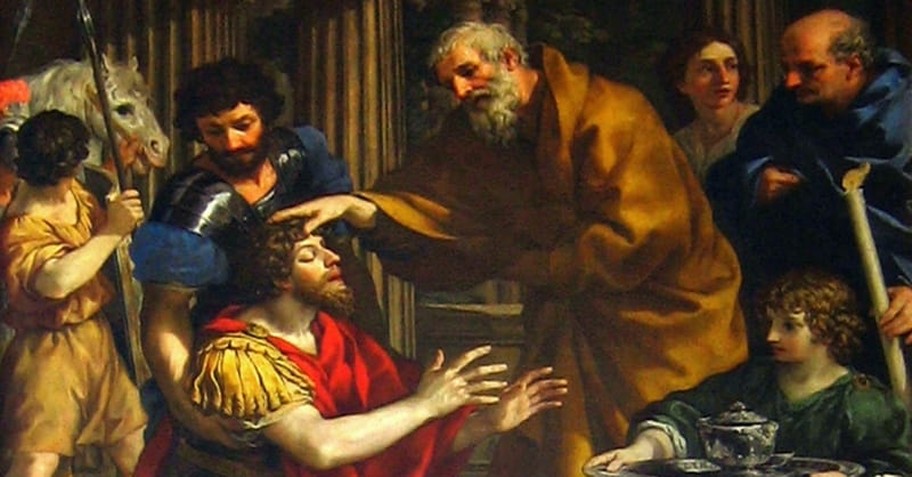
The Road to Damascus
One of the most well-known stories about the Early Church disciple, Paul, is his journey to Damascus when he met Jesus. It is recorded in Acts 9:
"Meanwhile, Saul was still breathing out murderous threats against the Lord’s disciples. He went to the high priest and asked him for letters to the synagogues in Damascus, so that if he found any there who belonged to the Way, whether men or women, he might take them as prisoners to Jerusalem. As he neared Damascus on his journey, suddenly a light from heaven flashed around him. He fell to the ground and heard a voice say to him, “Saul, Saul, why do you persecute me?” “Who are you, Lord?” Saul asked. “I am Jesus, whom you are persecuting,” he replied. “Now get up and go into the city, and you will be told what you must do.” The men traveling with Saul stood there speechless; they heard the sound but did not see anyone. Saul got up from the ground, but when he opened his eyes he could see nothing. So they led him by the hand into Damascus. For three days he was blind, and did not eat or drink anything."
"In Damascus there was a disciple named Ananias. The Lord called to him in a vision, “Ananias!”
“Yes, Lord,” he answered. The Lord told him, “Go to the house of Judas on Straight Street and ask for a man from Tarsus named Saul, for he is praying. In a vision he has seen a man named Ananias come and place his hands on him to restore his sight.” “Lord,” Ananias answered, “I have heard many reports about this man and all the harm he has done to your holy people in Jerusalem. And he has come here with authority from the chief priests to arrest all who call on your name.” But the Lord said to Ananias, “Go! This man is my chosen instrument to proclaim my name to the Gentiles and their kings and to the people of Israel. I will show him how much he must suffer for my name.” Then Ananias went to the house and entered it. Placing his hands on Saul, he said, “Brother Saul, the Lord—Jesus, who appeared to you on the road as you were coming here—has sent me so that you may see again and be filled with the Holy Spirit.”
Immediately, something like scales fell from Saul’s eyes, and he could see again. He got up and was baptized, and after taking some food, he regained his strength. Saul spent several days with the disciples in Damascus." (Acts 9:1-19)
In Acts 22, Paul gives testimony of this before a crowd in Jerusalem and again before King Agrippa in Acts 26.
Photo Courtesy: Anthony M. from Rome, Italy, Ananias restoring the sight of st paul (34663925), size, CC BY 2.0
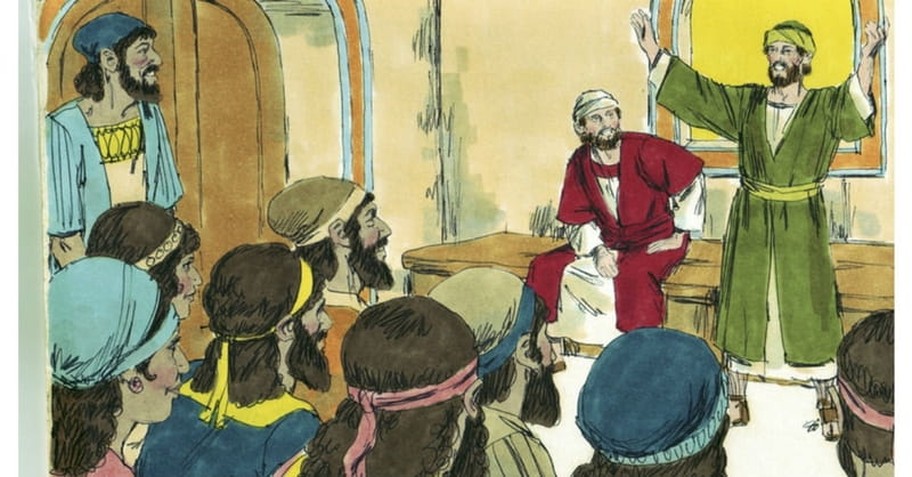
The Spread of Christianity to Antioch, Syria
The members of the Early Church spent a lot of time in Syria. Antioch was the center of one of the first Christian churches. Acts 11:19-30 records the spread of Christianity to Antioch and the missionary journeys of Barnabas and Paul (Saul):
"Now those who had been scattered by the persecution that broke out when Stephen was killed traveled as far as Phoenicia, Cyprus and Antioch, spreading the word only among Jews. Some of them, however, men from Cyprus and Cyrene, went to Antioch and began to speak to Greeks also, telling them the good news about the Lord Jesus. The Lord’s hand was with them, and a great number of people believed and turned to the Lord."
"News of this reached the church in Jerusalem, and they sent Barnabas to Antioch. When he arrived and saw what the grace of God had done, he was glad and encouraged them all to remain true to the Lord with all their hearts. He was a good man, full of the Holy Spirit and faith, and a great number of people were brought to the Lord. Then Barnabas went to Tarsus to look for Saul, and when he found him, he brought him to Antioch."
"So for a whole year Barnabas and Saul met with the church and taught great numbers of people. The disciples were called Christians first at Antioch. During this time some prophets came down from Jerusalem to Antioch. One of them, named Agabus, stood up and through the Spirit predicted that a severe famine would spread over the entire Roman world. (This happened during the reign of Claudius.) The disciples, as each one was able, decided to provide help for the brothers and sisters living in Judea. This they did, sending their gift to the elders by Barnabas and Saul.”
Photo Courtesy: ©Distant Shores Media/Sweet Publishing, Acts of the Apostles Chapter 14-11 (Bible Illustrations by Sweet Media), size, CC BY-SA 3.0
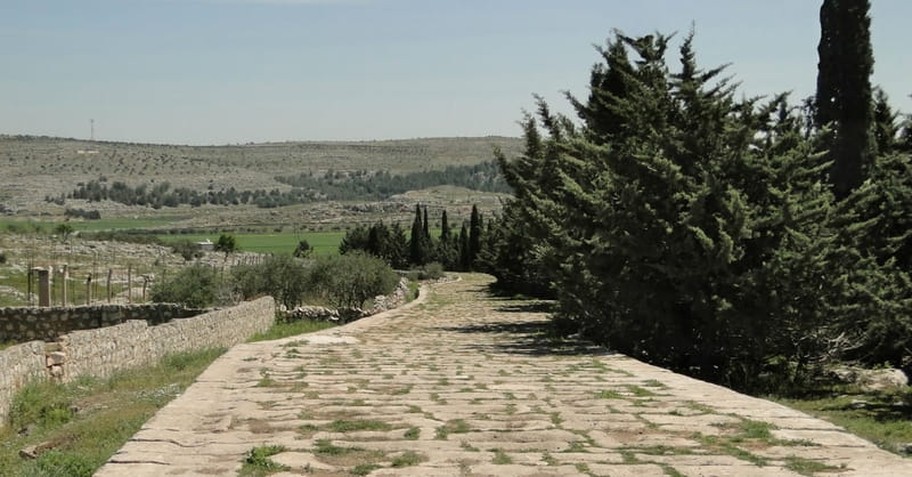
The Importance of Antioch to the Early Church
Antioch was extremely significant in the Early Church. The International Standard Bible Encyclopedia concludes:
"Antioch was the cradle of Gentile Christianity and of Christian missionary enterprise. It was at the instance of the church at Antioch that the council at Jerusalem decided to relieve Gentile Christians of the burden of the Jewish law (Acts 15). Antioch was Paul's starting point in his three missionary journeys (Acts 13:1; Acts 15:36; Acts 18:23), and thither he returned from the first two as to his headquarters (Acts 14:26; Acts 18:22)."
"Here also the term "Christian," doubtless originally a nickname, was first applied to the followers of Jesus (Acts 11:26). The honorable record of the church at Antioch as the mother-church of Gentile Christianity gave her a preeminence which she long enjoyed." To read the full passage, click here.
Other reports of the Early Church going to and from Antioc h or Syria can be found in Acts 13:24-52, Acts 14:26-28, Acts 18:18-23, Acts 20:3, Acts 21:3-7, Galatians 1:21, and 2 Timothy 3:10-11.
Photo Courtesy: ©Bernard Gagnon, Ancient Roman road of Tall Aqibrin, size, CC BY-SA 3.0
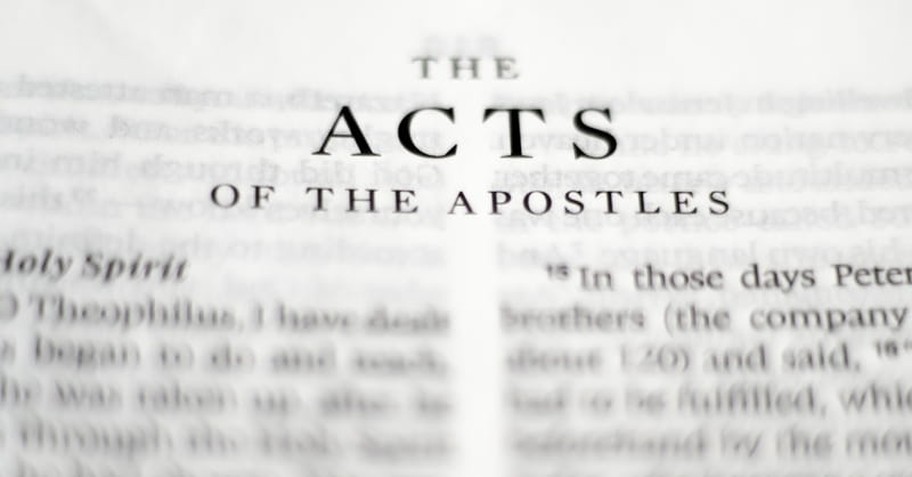
Confusion in Antioch
There were some people who went to Antioch to speak to the believers there. They told them they had to become circumcised. Bothered by this, Paul and Barnabas set off for Jerusalem to discuss with other members of church. After much deliberation, the church came to a conclusion and sent a letter with Paul, Barnabas, Silas, and Judas (Barsabbas). Luke records this significant moment for Gentile believers in Acts 15:
"Then the apostles and elders, with the whole church, decided to choose some of their own men and send them to Antioch with Paul and Barnabas. They chose Judas (called Barsabbas) and Silas, men who were leaders among the believers. With them they sent the following letter:”
"The apostles and elders, your brothers, To the Gentile believers in Antioch, Syria and Cilicia: Greetings. We have heard that some went out from us without our authorization and disturbed you, troubling your minds by what they said. So we all agreed to choose some men and send them to you with our dear friends Barnabas and Paul—men who have risked their lives for the name of our Lord Jesus Christ. Therefore we are sending Judas and Silas to confirm by word of mouth what we are writing. It seemed good to the Holy Spirit and to us not to burden you with anything beyond the following requirements: You are to abstain from food sacrificed to idols, from blood, from the meat of strangled animals and from sexual immorality. You will do well to avoid these things. FAREWELL."
"So the men were sent off and went down to Antioch, where they gathered the church together and delivered the letter. The people read it and were glad for its encouraging message. Judas and Silas, who themselves were prophets, said much to encourage and strengthen the believers. After spending some time there, they were sent off by the believers with the blessing of peace to return to those who had sent them. But Paul and Barnabas remained in Antioch, where they and many others taught and preached the word of the Lord."
To read the whole powerful story, click here.
Photo Courtesy: ©Lightstock

The Faith of the First Christians throughout Syria
The faith of the Syrian Christians in the Early Church can be seen throughout the book of Acts.
In Acts 11, we recall Saul/Paul's conversion on the road to Damascus and the servant of God, Ananais, who received a word from the Lord and restored his sight.
We also see the strong faith of the Christians at Antioch in Acts 13:
"Now in the church at Antioch there were prophets and teachers: Barnabas, Simeon called Niger, Lucius of Cyrene, Manaen (who had been brought up with Herod the tetrarch) and Saul. While they were worshiping the Lord and fasting, the Holy Spirit said, “Set apart for me Barnabas and Saul for the work to which I have called them.” So after they had fasted and prayed, they placed their hands on them and sent them off." (Acts 13:1-3)
Paul and Barnabas testified to the church in Jerusalem about the faith of the believers in Antioch:
"The whole assembly became silent as they listened to Barnabas and Paul telling about the signs and wonders God had done among the Gentiles through them." (Acts 15:12)
The Syrian Christians at Tyre also showed their dedication to the Gospel message:
"After sighting Cyprus and passing to the south of it, we sailed on to Syria. We landed at Tyre, where our ship was to unload its cargo. We sought out the disciples there and stayed with them seven days. Through the Spirit, they urged Paul not to go on to Jerusalem. When it was time to leave, we left and continued on our way. All of them, including wives and children, accompanied us out of the city, and there on the beach, we knelt to pray. After saying goodbye to each other, we went aboard the ship, and they returned home. We continued our voyage from Tyre and landed at Ptolemais, where we greeted the brothers and sisters and stayed with them for a day." (Acts 21:3-7)
The Christian Syrians were dedicated to following Jesus' teaching. They were led by the Holy Spirit and in communion with God through prayer. They lived out their beliefs in their churches and prayed for and showed hospitality towards Paul and other missionaries as they sent them off on mission to preach the Gospel.
Photo Courtesy: Thinkstock
Originally published April 23, 2018.







